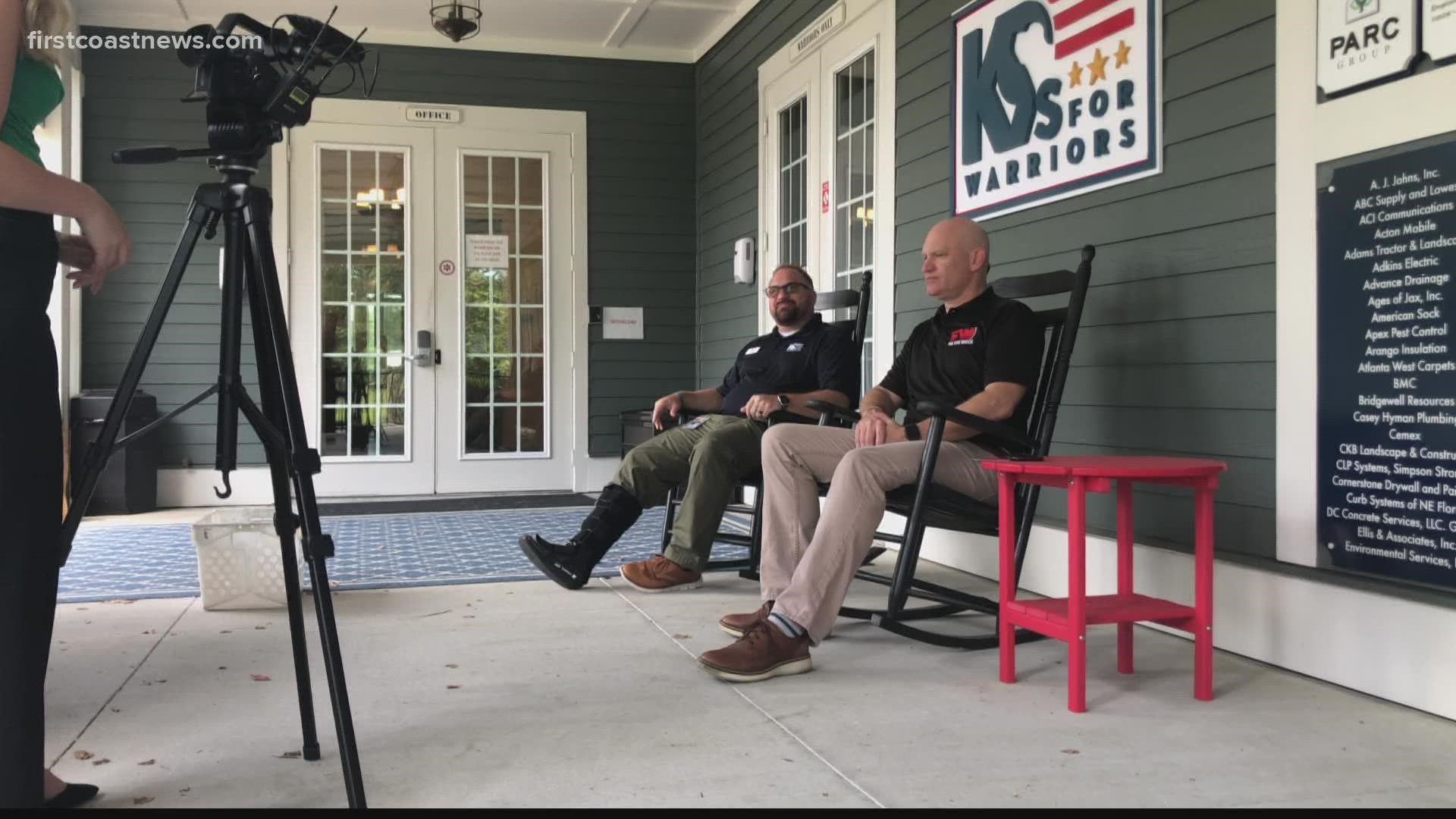NOCATEE, Fla. — The calls to veteran suicide crisis lines are surging since the withdrawal from Afghanistan and the terror attacks there.
In August, the Fire Watch Organization says the veteran suicide hotline through the Department of Veterans Affairs received the highest number of calls compared to any August on record.
Hotlines are a great resource, but you can be a resource too. It just takes some training.
“Yeah I struggled," said U.S. Marine Corps Veteran Mike Drafts. "I struggled a lot.”
Not an easy thing for anyone to admit. Let alone a veteran.
Drafts has PTSD from his time in service. As he heals his scars, he works at K9s for Warriors, helping veterans struggling just the same.
“People have good days and bad days," Drafts explained. "It could be a date that is important to them, or an anniversary of something tragic that happened that triggered them.”
The withdrawal from Afghanistan and the terror attacks there have been a trigger for many.
“All the veterans who were a part of the operation in Afghanistan, a majority of them feel their service the time that they served was meaningless," Drafts said.
Another potential trigger is coming up on the calendar: the 20th year since the attacks on Sept. 11, 2001. Four coordinated terrorist attacks on American soil killed nearly 3,000 people and left lasting effects on many more.
Story continues below.
“Almost one in four members in our community have ties to someone in the military," said Nick Howland, a Navy veteran. "It’s as important as ever here more than other places to learn those warning signs of veterans in crisis and to learn how to get them help.”
Howland is dedicated to preventing veteran suicide through his organization the Fire Watch. He said helping a vet starts by noticing when someone is struggling and asking, “Are you OK? Are you going to hurt yourself?”
“It gets them thinking about that, and it helps them break down the stigma of asking for help," Howland said. "We know veterans like myself and Mike are notorious for not asking for help, potentially for being stubborn."
Research shows asking the question can help the situation.
Howland also created a training program called Watch Standers to train the general public to identify a veteran in crisis and respond accordingly.
The training takes 45 minutes.
“It’s OK to not be OK sometimes," Drafts said.
There are other hotlines you can share with veterans as a recourse:
- National Suicide Prevention Lifeline: 800-273-8255
- Vets for Warriors (a hotline where veterans can talk to other veterans): 855-838-8255

